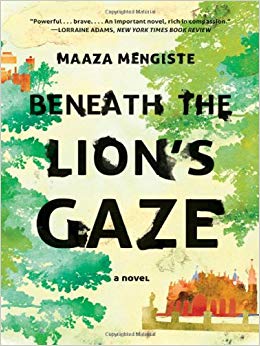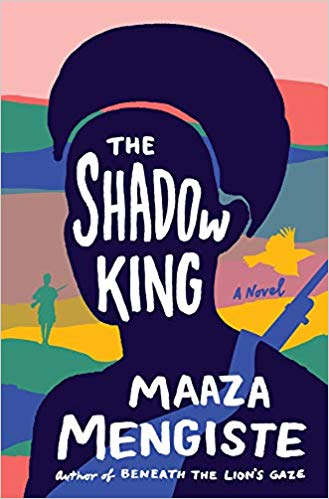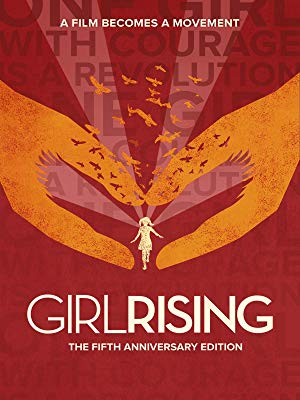Background
Maaza Mengiste was born in 1971 in Addis Ababa, Ethiopia, and lived in Nigeria and Kenya. When she was four, her family settled in the United States.

2010
Maaza Mengiste with Petina Gappah at Gothenburg Book Fair in September 2010.
2014
Maaza Mengiste at the international literature festival in Leukerbad in July 2014. Photo by Jonas Ludwig Walter.
2019
Maaza Mengiste at BookExpo 2019.
2019
Maaza Mengiste with Marlon James at Calabash Festival in Jamaica in 2019.
Maaza Mengiste
Maaza Mengiste with Chiké Frankie Edozien.
1650 Bedford Ave #2010, Brooklyn, NY 11225, United States
Maaza Mengiste at the forum "Identity in the Age of Globalization: An African Diaspora Perspective" at Medgar Evers College.
Maaza Mengiste with Helina Metaferia, Ladin Awad, and Adé O. Photo by Deb Willis.
Maaza Mengiste with Karen M. Phillips.
Maaza Mengiste
Maaza Mengiste
Maaza Mengiste
Maaza Mengiste
Maaza Mengiste with Okey Ndibe, Chika Unigwe, Caryl Phillips, Chinelo Okparanta, and Chuma Nwokolo at the Marriott Center Campus.
Maaza Mengiste on an episode of Current Conversations.
Maaza Mengiste at the Professional Staff Congress City University of New York.
209 E 23rd St, New York, NY 10010, United States
Maaza Mengiste at School of Visual Arts.
Maaza Mengiste with Sheila Kohler.
Maaza Mengiste with Viet Thanh Nguyen. Photo by Gilbert King.
New York University where Maaza Mengiste received her Master of Fine Arts degree.






















(This memorable, heartbreaking story opens in Addis Ababa,...)
This memorable, heartbreaking story opens in Addis Ababa, Ethiopia, 1974, on the eve of a revolution. Yonas kneels in his mother’s prayer room, pleading to his god for an end to the violence that has wracked his family and country. His father, Hailu, a prominent doctor, has been ordered to report to jail after helping a victim of state-sanctioned torture to die. And Dawit, Hailu’s youngest son, has joined an underground resistance movement - a choice that will lead to more upheaval and bloodshed across a ravaged Ethiopia. Beneath the Lion’s Gaze tells a gripping story of family, of the bonds of love and friendship set in a time and place that has rarely been explored in fiction. It is a story about the lengths human beings will go in pursuit of freedom and the human price of a national revolution.
https://www.amazon.com/Beneath-Lions-Gaze-Maaza-Mengiste/dp/0393338886/?tag=2022091-20
2010

(With the threat of Mussolini’s army looming, recently orp...)
With the threat of Mussolini’s army looming, recently orphaned Hirut struggles to adapt to her new life as a maid in Kidane and his wife Aster’s household. Kidane, an officer in Emperor Haile Selassie’s army, rushes to mobilize his strongest men before the Italians invaded. His initial kindness to Hirut shifts into flinty cruelty when she resists his advances, and Hirut finds herself tumbling into a new world of thefts and violations, of betrayals and overwhelming rage. Meanwhile, Mussolini’s technologically advanced army prepares for an easy victory. Hundreds of thousands of Italians - Jewish photographer Ettore among them - march on Ethiopia seeking adventure.
https://www.amazon.com/Shadow-King-Novel-Maaza-Mengiste/dp/039308356X/?tag=2022091-20
2019

(Girl Rising commemorates the stories of nine incredible g...)
Girl Rising commemorates the stories of nine incredible girls-striving beyond circumstance, pushing past limits. Their dreams, their voices, their remarkable stories-captured in an unforgettable film about the power of education.
https://www.amazon.com/Girl-Rising-Anniversary-Alicia-Keys/dp/B07GB14YMG/?tag=2022091-20
2013
Maaza Mengiste was born in 1971 in Addis Ababa, Ethiopia, and lived in Nigeria and Kenya. When she was four, her family settled in the United States.
Maaza Mengiste studied in Italy as a Fulbright Scholar. Then she received a Master of Fine Arts degree in creative writing from New York University.
Maaza Mengiste is a novelist and essayist whose work examines the individual lives at stake during migration, war, and exile, and considers the intersections of photography and violence. Her debut novel, Beneath the Lion’s Gaze (2010), is set in Ethiopia in the 1970s and revisits the last days of the Ethiopian monarchy and the brutal beginnings of the Derg, the socialist military junta that replaced it. The story focuses on the Hailu family as they struggle to make difficult choices within a political climate that grows increasingly complex and dangerous.
Her second novel is The Shadow King (2019). It is set in 1935 during Mussolini’s invasion of Ethiopia and tells the story of the Italo-Ethiopian war from both sides of the conflict. It revolves around an army of ordinary women since left out of the historical record, who join the front lines to fight against the fascists. Through complicated characters who face no easy answers, The Shadow King explores what it means to be a woman at war.
Her work has appeared in The New Yorker, Granta, The Guardian, The New York Times, Rolling Stone, BBC Radio, and Lettre International, among other places. Mengiste was also a writer on the documentary films The Invisible City: Kakuma, about a refugee camp in the middle of the Turkana desert in Kenya that has become the region’s fastest-growing community; and Girl Rising, which tells the stories of nine girls from developing nations around the world overcoming obstacles to education and security. Girl Rising, which features the voices of Meryl Streep, Liam Neeson, and Cate Blanchett, is part of the Girl Rising project, a global action campaign for girls’ education and empowerment.
She is a visiting Assistant Professor of Creative Writing at Queens College of the City University of New York and a Lecturer of Creative Writing in the Lewis Center for the Arts at Princeton University.
Maaza Mengiste was runner-up for the 2011 Dayton Literary Peace Prize and a finalist for a Flaherty-Dunnan First Novel Prize, the National Association for the Advancement of Colored People Image Award, and an Indies Choice Book of the Year Award in Adult Debut. Her debut novel, Beneath the Lion’s Gaze, was selected by The Guardian as one of the 10 best contemporary African books and named one of the best books of 2010 by Christian Science Monitor, Boston Globe, and other publications. It was translated into French, Spanish, Portuguese, German, Italian, Dutch, and Swedish. Mengiste is the recipient of fellowships from the Fulbright Scholar Program, the National Endowment for the Arts, and Creative Capital.
(With the threat of Mussolini’s army looming, recently orp...)
2019(This memorable, heartbreaking story opens in Addis Ababa,...)
2010(Girl Rising commemorates the stories of nine incredible g...)
2013E. L. Doctorow, Toni Morrison, James Baldwin, and Edith Wharton are among Maaza Mengiste's influences. She is excited by such Ethiopian writers as Nafkote Tamirat, Mik Awake, Meron Hadero, Sulaiman Addonia, Hannah Giorgis, Girma T. Fantaye, Adam Reta, Hiwot Teffera, Mahtem Shiferraw, Rebecca Fisseha, Lelisa Girma, Hiwot Adilow, and Linda Yohannes.
Her playlist includes Mahmoud Ahmed, Ephrem Tamiru, Anne Gastinel, Bonga, Mina, Sviatoslav Richter, Emahoy Tsegué-Maryam Guèbrou, Sarah Vaughan, Rihanna, Chet Baker, Charles Bradley, Nas, Childish Gambino, and others.
Quotations:
"What is profound about fiction is that it creates a place where we can imagine the possible futures of these kinds of movements. Those are the kinds of questions we have to ask as writers."
"The attacks on free press and media feel like an urgent signal for writers and journalists to continue to call out injustice and stand together. I find that the atmosphere of fear pervasive in this country has created self-censorship."
"I think a writer’s identity is that of someone who has pledged allegiance to seeking and challenging truths."
"All the poets that were, or the poet that was, Homer. I would ask them to talk to me about how they breathed life into this epic and kept it alive for so long."
"We know the world is more than we can sense or experience in one lifetime; stories help expand our boundaries."
"Regarding World War II, so much of how we understand the contemporary, what it means to be humane, heroic, nationalistic, patriotic, how we define genocide, really arises at that moment in history."
"We must not be anything other than what we are."
"The nature of love is to kill for it, or to die."
"Hope can never come from doing nothing."
Maaza's activism in human rights shows up in the most various activities and associations - she works in the border of Warscapes, of Words Without Borders and of the Young Center for Immigrant Children’s Rights and through her writing she raises awareness on social issues.
